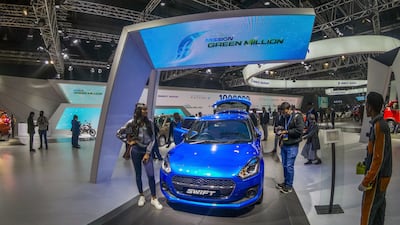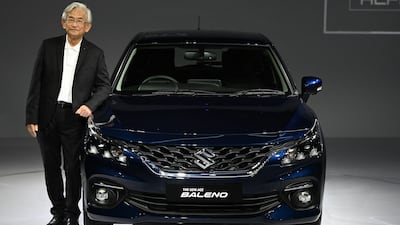Rising fuel costs are prompting UAE motorists to seek out alternative modes of transport ― and put a focus on short-term rentals to navigate the daily commute.
People have had to pay more at the pumps in recent months as global oil prices surge, with a 13 per cent increase in June following spikes of 10 per cent in March and 16 per cent in April.
Jaideep Dhanoa, co-founder and chief executive of Fenix, a UAE micromobility operator, said more commuters are turning their backs on cars to avoid fuel and parking expenses.
“Globally and regionally we are grappling with increasing inflation on a range of personal expenses, from fuel costs to hikes in groceries, which is eating into our disposable income,” he said.
“More people are looking at how they can save on spending for everyday tasks like commuting.
“From a mobility lens, people are turning to car sharing and for those looking to purchase, electric cars have become far more attractive from a cost standpoint. But the challenge is there is not enough supply to meet the demand.
“This is where other modes of micromobility come into play, like e-scooters and e-bikes.”
Rental options entice commuters
Last month, Fenix, which has 10,000 lightweight vehicles distributed across 10 cities in the GCC ― its biggest share being in the UAE ― recorded its strongest month to date since launching in late 2020.
“For our e-scooters and e-bikes we offer a rent-per-trip basis,” he said.
“We also offer a personal subscription vehicle for Dh150 a month, which is where we deliver a scooter to your house, you have unlimited rides, a smart app to monitor journey and battery life as well as service maintenance and insurance cover."
Operating on a Dh1 per minute basis, he said users were opting for micromobility vehicles to make short trips to work, to ferry them to and from public transport stations, or to connect with colleagues or friends at a meeting point to car-share for longer journeys.
Sharing the load
Dubai teacher Alexandra Gordon, 37, said she occasionally shares a car ride to work with friends because it is more economical than buying and maintaining a car. She travels a short distance from Motor City to Remraan.
“When I lived in the UK I always used public transport or car pooled,” she said.
“When I moved to Dubai at first, my home was in walking distance of my job but I have since moved and initially started getting taxis to and from work because I was unfamiliar with the public transport routes.
“I now bus it to work and taxi it home. With the rising cost of fuel I would love public transport in Dubai to expand because I want to try to be as sustainable as possible with my travel.”
Downsizing your vehicle
Some motorists took a long-term view and traded in gas-guzzling SUVs for more fuel-efficient vehicles.
Christopher Creek, 53, who lives in Abu Dhabi, drove a Jeep Grand Cherokee before switching to a Nissan Micra 18 months ago, saving himself Dh500 a month in the process.
“I switched because of the overall ease of leasing a car, including the lower fuel costs,” the aircraft engineer from the UK told The National, before the recent increases at the UAE's forecourts.
Maria Sobh, 26, sold her Jeep after she realised she spent more than Dh1,300 a month on fuel.
Going electric
About 52 per cent of UAE residents are considering a switch to hybrid or electric motoring as the increase in fuel prices increasingly influences the way consumers think about transport, according to a survey by Audi Abu Dhabi released last month.
According to the research, which polled 1,000 UAE residents, 25 per cent of people surveyed are waiting for more EV options to be launched before buying.
Residents in the UAE are now planning their car journeys more carefully, with about 25 per cent saying they use public transport a lot more now, while 14 per cent of drivers have bought an electric scooter or bike to use over short distances, the survey revealed.
Dubai extends e-scooter network
In April, Dubai permitted e-scooters to be used in 10 districts and on cycling tracks as part of plans to extend the network of electric vehicles across Dubai.
Two thousand vehicles, operated by four companies, were made available for rent in areas identified as most likely to benefit from greater access to e-scooters.
The network covers a 167 kilometres across Sheikh Mohammed bin Rashid Boulevard, Jumeirah Lakes Towers, Dubai Internet City, Al Rigga, 2nd of December Street, The Palm Jumeirah, and City Walk.










